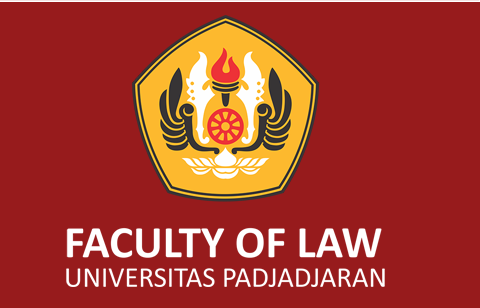Abstract
This study compares three formal criminal laws on the corruption act to show the importance of due process model for wiretapping/lawful interception in Indonesia. Investigators of Indonesian Corruption Eradication Commission (KPK) assume that the implementation of wiretapping based on the due process model decelerate the performance and independence of corruption eradication. The problem particularly happens on the execution of caught in the act operation. This study covers the design of wiretapping on corruption case linked with the due process model as an effort to guarantee the right of privacy. Firstly, legislators accentuated an effective corruption eradication, which highlights the implementation of the crime control model. Secondly, the latest amendment to the Law on Corruption Eradication Commission of Indonesia alters wiretapping to become a procedural activity for stronger synergy among the law enforcement institutions. The regulation of wiretapping as a method to reveal corruption case in Indonesia does not adhere to the due process model entirely. The wiretapping still tends to deal with stages of preliminary-investigation, investigation, prosecution, and the execution of internal approval process.
From Crime Control Model to Due Process Model: Studi Kritis Pengaturan Penyadapan oleh Komisi Tindak Pidana Korupsi Republik Indonesia
Abstrak
Hasil penelitian atas tiga undang-undang hukum pidana formil terkait tindak pidana korupsi di Indonesia menunjukkan pentingnya model due process dalam penyadapan. Penyidik Komisi Pemberantasan Korupsi Republik Indonesia memandang pelaksanaan penyadapan berdasarkan model due process memperlambat kinerja dan independensi penegakan korupsi terutama dilakukannya Operasi Tangkap Tangan. Artikel ini membahas rancang bangun penyadapan pada tindak pidana korupsi dikaitkan dengan model due process sebagai upaya menjamin hak asasi manusia, secara khusus hak privasi. Pertama, awalnya pembentuk undang-undang lebih menekankan pemberantasan tindak pidana korupsi secara efektif sehingga menunjukkan penerapan model pengawasan tindak pidana. Kedua, UU KPK RI mengubah penyadapan lebih prosedural dengan harapan menguatkan sinergitas antar lembaga penegak hukum. Pengaturan penyadapan atas tindak pidana korupsi di Indonesia masih belum sepenuhnya memberlakukan model due process. Penyadapan masih bersifat sektoral dengan mencakup tahap penyelidikan, penyidikan dan penuntutan serta menjalankan proses perijinan secara internal.
Kata kunci: korupsi, model due process, model pengawasan tindak pidana.
DOI: https://doi.org/10.22304/pjih.v7n3.a7
Recommended Citation
Christianto, Hwian
(2020)
"From Crime Control Model to Due Process Model: A Critical Study of Wiretapping Arrangement by the Corruption Eradication Commission of Indonesia,"
Padjadjaran Jurnal Ilmu Hukum (Journal of Law): Vol. 7:
No.
3, Article 1.
DOI: https://doi.org/10.22304/pjih.v7n3.a7
Available at:
https://journal.unpad.ac.id/pjih/vol7/iss3/1
References
Books
Eddy O.S. Hiariej, Hukum Pembuktian, Jakarta: Erlangga, 2012.
Garner, Bryan A., Black’s Law Dictionary, Eighth Edition, New York: West-Thomson, 2004.
Packer, Herbert L., The Limits of Criminal Sanction, Standford: Standford University Press, 1968.
Reda Manthovani, Penyadapan vs Privasi, Jakarta: Bhuana Ilmu Populer, 2015.
Other Documents
Anderson, Beverlee B., “Corrupting activities and economic development. World Journal of Entrepreneurship, Management and Sustainable Development, Vol. 11, Issue 1, 2015.
Armunanto Hutahean & Erlyn Indarti, “Implementation of Investigation by the Indonesian National Police in Eradicating Corruption Crime”, Journal of Money Laundering Control, Vol. 23, Issue 1, 2020.
Begum, Alfroza., “Corruption in business: A Critical appraisal of the Australian regulatory regima in the light of UK Bribery Act 2010”, Journal of Financial Crime, Vol. ahead-of-print, No. ahead-of-print., https://doi.org/10.1108/JFC-02-2020-0018
Bernardi, R.A., & Hayashi, I., “The Association between Bribery and Unethical Actions: An Asian Perspective”, European Journal of Business and Innovation Research, Vol. 1, Issue 2, 2013.
Bowman, Diana., & Gilligan, George., “Public awareness of corruption in Australia”, Journal of Financial Crime, Vol. 14, Issue 4, 2007.
Dincer, Oguzhan., “If youre corrupt, you’d better be free”, Journal of Economic Studies, Vol. ahead-of-print, No. ahead-of-print., 2020, https://doi.org/10.1108/JES-04-2019-0153
Dion, Michel., “What is corruption corrupting? A philosophical viewpoint”, Journal of Money Laundering Control, Vol.13, No. 1, 2010.
Dworkin, Roger B., “The Limits of the Criminal Sanction, by Herbert L. Packer”, Indiana Law Journal, Vol. 44, Issue 3, 1969.
Edkins, Vanessa A., & Royal, Kenneth D., “Evaluating the Due Process and Crime Control Perspectives Using Rasch Measurement Analysis”, Journal of MultiDisciplinary Evaluation, Vol. 7, Issue. 16, 2011.
Edmon Makarim, “Indonesia: the Controversy over the bill concernining lawful interception”, Digital Evidence and Electronic Signature Law Review, Vol. 8, Issue 1, 2011.
Endah Lismartini & Cahyo Edi, ed., “Busyro: Izin Penyadapan Masuk dalam Upaya Pelemahaman KPK”, https://www.vivanews.com/berita/nasional/5821-busyro-izin-penyadapan-masuk-dalam-upaya-pelemahan-kpk?medium=autonext, diakses 8 Mei 2020.
Gottschalk, Petter., “Categories of finansial crime”, Journal of Financial Crime, Vol. 17, Issue. 4, 2010.
Hendi Yogi Prabowo & Cooper, K., “Re-understanding corruption in the Indonesian public sector through three behavioral lenses”, Journal of Financial Crime, Vol. 23, Issue 4, 2016.
Hwian Christianto, “Tindakan Penyadapan ditinjau dari Perspektif Hukum Pidana”, Jurnal Hukum Prioris, Vol.5, No.2, 2016.
Hwian Christianto, “Penyadapan, OTT dan Due Process of Law”, https://www.jawapos.com/opini/18/10/2019/penyadapan-ott-dan-due-process-of-law/, 18 Oktober 2019, diakses 8 Mei 2020
Kaylor, Elizabeth H., “Crime Control, Due Process, & Evidentiary Exclusion: When Exceptions Becoma the Rule”, Proceeding of the 71st New York State Communication Association, Vol. 2013, Issue 2013, Newyork-United States, 2014, http://docs.rwu.edu/nyscaproceedings/vol2013/iss2013/6
Kim, Yooung Jong., & Kim, Eun Sil., “Exploring the interrelationship between public service motivation and corruption theories”, Evidence-Based HRM, Vol. 4, Issue. 2, 2016.
Latimer, Paul., “Anti-bribery laws-compiance issues in Australia”, Journal of Financial Crime, Vol. 24, Issue 1, 2017.
Monteverde, Vicente H., “Microeconomics of corruption based on behavioural economics”, Journal of Financial Crime, Vol. ahead-of-print No. ahead-of-print, 2020, page 3, https://doi.org/10.1108/JFC-03-2020-0043
Mulikin, Arwen., & Rahman, Shawon S.M., “The Ethical Dilemma of the USA Government Wiretapping”, International Journal of Managing Information Technology (IJMIT), Vol. 2, Issue 4 November 2010, https://papers.ssrn.com/sol3/papers.cfm?abstract_id=3393479, diakases 8 Mei 2020
Olken, B.A., “Corruption perceptions vs. corruption reality”, Journal of Public Economics, Vol.93, Issue 7, 2009.
Purcell, Aquinas John., “Australian local goevernment corruption and misconduct”, Journal of Financial Crime, Vol. 23, Issue. 1, 2016.
Rus, Jure., “Effective Detection and Investigation of Corruption”, Proceeding Expert Seminar Effective Means of Investigation and Prosecution of Corruption: OECD Anti-Corruption Network for Eastern Europe and Central Asia, Bucharest-Romania, 20-22 October 2010.
Spence, Edward Howlett., “The sixth estate: tech media corruption in the age of information”, Journal of Information, Communication and Ethics in Society, Vol. ahead-of-print No. ahead-of-print, 2020, https://doi.org/10.1108/JICES-02-2020-0014
Tim Penyusun Laporan Tahunan KPK 2016, “Hingga ke Bawah Permukaan: Laporan Tahun 2016 Komisi Pemberantasan Tindak Pidana Korupsi Republik Indonesia”, https://www.kpk.go.id/images/Laporan%20Tahunan%20KPK%202016%20Bahasa%20Indonesia.pdf, Diakses 8 Mei 2020
Transparency International (2012), “What is corruption?”,www.transparency.org/ whatwedo?gclidCMmQoarv27ECFaRMpgod_T4A0w , diakses 8 Mei 2020
Transperency International, “Corruption Perceptions Index”,https://www.transparency.org/cpi2019, diakses 4 April 2020.
Legal Documents
Australian Government, “Telecommunications (Interception and Access) Act 1979”, https://www.legislation.gov.au/Details/C2017C00192, diakses 8 Mei 2020
General Secretary of United Nations https://treaties.un.org/doc/Publication/UNTS/Volume%201144/volume-1144-I-17955-English.pdf, diakses 8 Mei 2020
OYEZ, “Case 277 US 438 (1928)”,https://www.oyez.org/cases/1900-1940/277us438, 277 US 438 (1928), diakses 8 Mei 2020
United States Congress, “Constitution of United States”, https://constitution.congress.gov/constitution/amendment-4/, diakses 8 Mei 2020
OYEZ, “Case 389 US 347 (1967)”, https://www.oyez.org/cases/1967/35, diakses 8 Mei 2020
United States Congress, “Constitution of United States”, https://constitution.congress.gov/constitution/amendment-5/, diakses 8 Mei 2020
Putusan Mahkamah Konstitusi Republik Indonesia Nomor 5/PUU-VIII/2010 tentang permohonan uji materiil atas Pasal 31 ayat (2) Undang-Undang Informasi dan Transaksi Elektronik yang menentukan tata cara penyadapan diatur lebih lanjut melalui Peraturan Pemerintah.
Section 801 Titel III OCCSSA 1968, “Omnibus Crime Control and Safe Streets Act of 1968”, https://transition.fcc.gov/Bureaus/OSEC/library/legislative_histories/1615.pdf, diakses 8 Mei 2020
Undang-Undang Dasar Negara Republik Indonesia Tahun 1945
Undang-Undang Nomor 8 Tahun 1981 tentang Hukum Acara Pidana
Undang-Undang Nomor 5 Tahun 1997 tentang Psikotropika.
Undang-Undang Nomor 31 Tahun 1999 tentang Pemberantasan Tindak Pidana Korupsi
Undang-Undang Nomor 20 Tahun 2001 tentang Perubahan Undang-undang Nomor 31 Tahun 1999
Undang-Undang Nomor 17 Tahun 2004 tentang Majelis Permusyawaratan Rakyat, Dewan Perwakilan Rakyat, Dewan Perwakilan Daerah dan Dewan Perwakilan Rakyat Daerah.
Undang-Undang Nomor 35 Tahun 2009 tentang Narkotika.
Undang-Undang Nomor 19 Tahun 2019 tentang Perubahan Kedua Undang-Undang Nomor 30 Tahun 2002 tentang Komisi Pemberantasan Tindak Pidana Korupsi.
UNDOC, National Strategy Corruption Prevention and Eradication of Republic of Indonesia”, https://www.unodc.org/documents/indonesia/publication/2012/Attachment_to_Perpres_55-2012_National_Strategy_Corruption_Prevention_and_Eradication_translation_by_UNODC.pdf, diakses 8 Mei 2020
DOI
https://doi.org/10.22304/pjih.v7n3.a7










